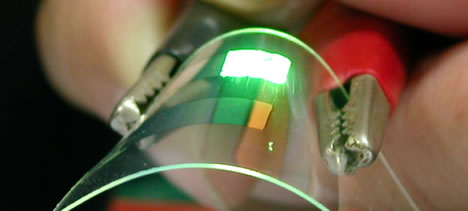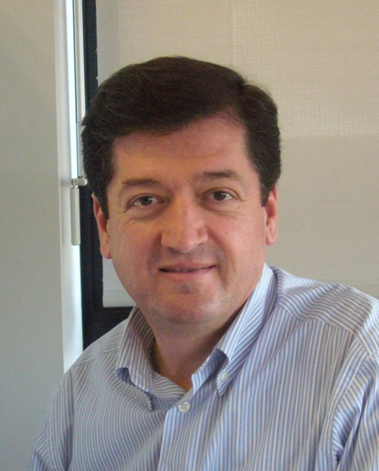Request lecture
Much of our daily activity involves the use of devices that work thanks to electronic components. These components have been perfected using inorganic semiconductor materials, among which silicon is the undisputed protagonist. However, silicon technology has its own limitations and, since the nineties, a great effort is being devoted to the development of a new electronics, called molecular electronics, based on the use of electroactive molecular materials. These materials are of an organic and capable of responding to electrical and light stimuli in a similar way to inorganic conductors and semiconductors. One of the events that has mostly contributed to the development of molecular electronics was the discovery of conductive polymers (plastics that conduct electricity), worthy of the 2000 Nobel Prize in Chemistry.
The current society has a growing energy demand that the resources of our planet cannot assume. This demand makes it necessary to design new more efficient lighting devices that reduce electricity consumption and, on the other hand, to develop alternative, non-polluting energy sources. In recent years, we have witnessed the revolution caused by LEDs (light emitting diodes) used as a very efficient source of lighting as they drastically reduce electricity consumption. The molecular electronics has managed to develop the Organic LEDs (OLEDs), which are already implemented in the screens of mobile phones and extra-flat TVs. The OLED technology provides light emitting surfaces and will occupy, in the next few years, a very prominent position in lighting systems with flat and even flexible devices.
After introducing molecular electronics, the exhibition will focus on the description of two of its most important applications: the transformation of electrical energy into light energy (organic light emitting diodes, OLEDs) and the transformation of light energy into electrical energy (solar cells). Special attention will be given to the use of OLEDs for the manufacture of screens of electronic devices (mobile phones, cameras, televisions, etc.) and for lighting systems.
Brief CV
Enrique Ortí studied Chemical Sciences at the University of Valencia and obtained the Extraordinary Degree Award and the one awarded by the Cañada-Blanch Foundation. In 1985, he received his doctorate under the direction of the Professors Tomás Vert and Sánchez Marín obtaining the Extraordinary Doctorate Award. After a postdoctoral stay at the University of Namur (Belgium) under the supervision of Ptofessor Brédas, he joined the University of Valencia in 1987 as Full Professor. He is currently a Professor of Physical Chemistry at the Faculty of Chemistry of the University of Valencia and a research member of the Molecular Science Institute (ICMol) of the University of Valencia. His research focuses on the application of quantum chemistry methods to the study of molecular materials used as electroactive/photoactive components in Molecular Electronics. In recent years, his research activity has stood out for his theoretical studies on electroactive supramolecular aggregates and, especially, on ionic complexes of transition metals used as electroluminescent components in light emitting devices. He directs the research group of Theoretical Chemistry of Molecular Materials of ICMol and is co-author of about 250 research articles (index h = 43). Throughout his scientific career, he has led numerous research projects and has established stable collaborations with experimental research groups of national and international prestige. His scientific career has been distinguished with the 2014 Award for Research Excellence of the Royal Spanish Society of Chemistry (RSEQ).
More information
To obtain material on the topic of the conference, it is enough to enter the following keywords in Google/Wikipedia: molecular electronics, polymers, conductors, electroluminescence, electroluminescent devices, light-emitting diodes (LEDs), organic light-emitting diodes (OLEDs), organic photovoltaic cells, etc.
Illustrative videos can be viewed on YouTube by entering the acronym OLED, or phrases such as: Molecular Electronics, Flexible OLEDs, Transparent OLEDs, OLED screens.
Molecular Material Theoretical Chemistry Group - MolMatTC
Social networks
- @ICMol_UV
- @FacQuimicaUVEG
- @CdCienciaUV
- @MednightGTS
Request lecture

Stimulating scientific vocations is a project of the Scientific Culture and Innovation Unit of the University of Valencia, which has co-funding from the Spanish Foundation for Science and Technology and the Ministry of Science and Innovation.











